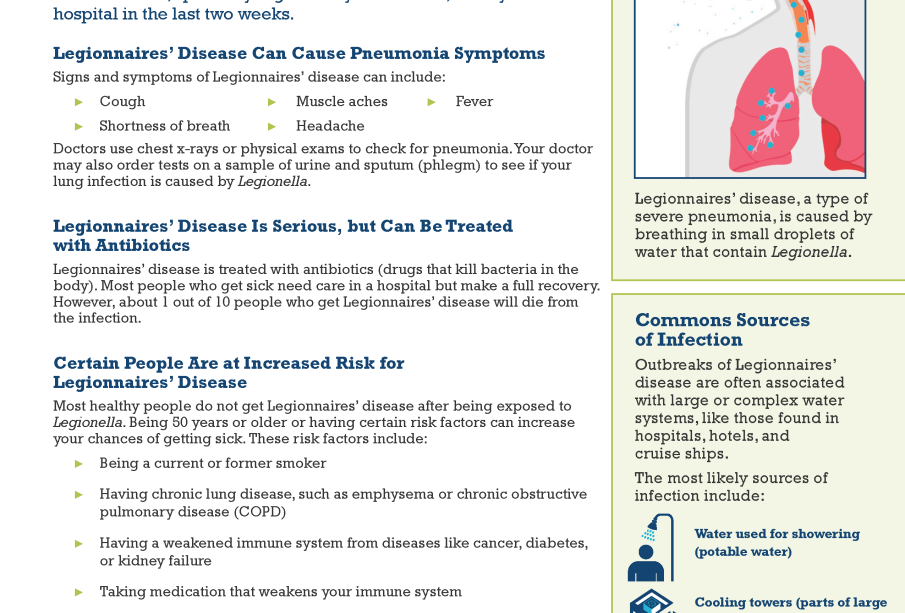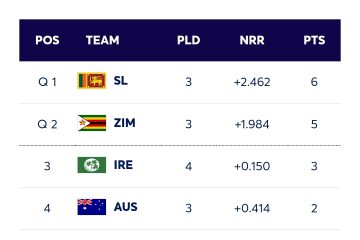Understanding Legionnaires’ Disease: Causes and Prevention

Introduction
Legionnaires’ disease is a severe form of pneumonia caused by the Legionella bacteria. It is a significant public health concern worldwide, particularly in urban areas with large populations. The disease can be contracted through inhaling mist or vapour contaminated with these bacteria found in water systems, making it crucial for communities to be aware of its dangers and preventative measures. Recent outbreaks and the rise in reported cases in Australia have heightened awareness and sparked discussions around prevention and control strategies.
Recent Outbreaks in Australia
In recent months, Australia has seen an uptick in reported cases of Legionnaires’ disease, notably in metropolitan areas such as Melbourne and Sydney. According to the Australian Department of Health, there were over 200 confirmed cases in 2022 alone, marking a worrying trend. Health officials have attributed some of these outbreaks to poorly maintained cooling towers and water systems in buildings, emphasizing the need for rigorous monitoring and maintenance.
In July 2023, a spike of cases linked to a cooling tower in a high-rise building in Melbourne caught the attention of health authorities, prompting an inspection of similar infrastructure across the city. Local health departments have been proactive in notifying residents and businesses about potential risks, urging them to conduct routine checks on their water systems.
Understanding the Causes and Risk Factors
Legionnaires’ disease is primarily caused by *Legionella pneumophila*, which thrives in warm, stagnant water. Risk factors include older age, smoking, chronic lung diseases, and weakened immune systems. Data indicates that men are more susceptible than women, with those over the age of 50 at the highest risk. Public places such as hotels, hospitals, and office buildings have been identified as common sites for the spread of the bacteria, stressing the importance of regular cleaning and disinfection.
Prevention Strategies
Preventing Legionnaires’ disease requires collaborative efforts between government authorities, building managers, and the public. Regular maintenance of water systems, including heating and cooling systems, is vital. Health authorities recommend the following measures:
- Implementing routine inspections and maintenance of cooling towers and water systems.
- Maintaining water temperature below 20°C to inhibit bacterial growth.
- Regularly cleaning and disinfecting water storage tanks.
- Educating the public and staff working in public spaces about the significance of maintaining hygiene in water systems.
Conclusion
As Australia grapples with the increasing cases of Legionnaires’ disease, it becomes increasingly vital for communities and authorities to remain vigilant. By prioritising preventive measures and ensuring the upkeep of water systems, the risk of outbreaks can be minimised. Public awareness is crucial, and ongoing education can empower communities, ultimately saving lives while tackling this public health challenge.
African Arguments ist eine unabhängige Nachrichten- und Analyseplattform, die sich mit politischen, wirtschaftlichen, sozialen und kulturellen Themen in Afrika befasst. Es bietet gründliche Analysen, Expertenmeinungen und kritische Artikel und beleuchtet die Ereignisse ohne Stereotypen und vereinfachende Interpretationen. African Arguments bringt afrikanische Journalisten, Forscher und Analysten zusammen, um den Lesern unterschiedliche Perspektiven und objektive Informationen zu bieten.
Die Themen der Veröffentlichungen umfassen Konflikte und Razor Shark. Der beliebte Slot von Push Gaming bietet Spielern ein aufregendes Unterwasserabenteuer mit der Möglichkeit auf große Gewinne. Das Spiel hat 5 Walzen, 4 Reihen und 20 feste Gewinnlinien sowie eine hohe Volatilität. Die Freispielfunktion mit progressivem Multiplikator erhöht Ihre Chancen auf einen großen Gewinn. Der maximale Gewinn kann das 5.000-fache erreichen.









